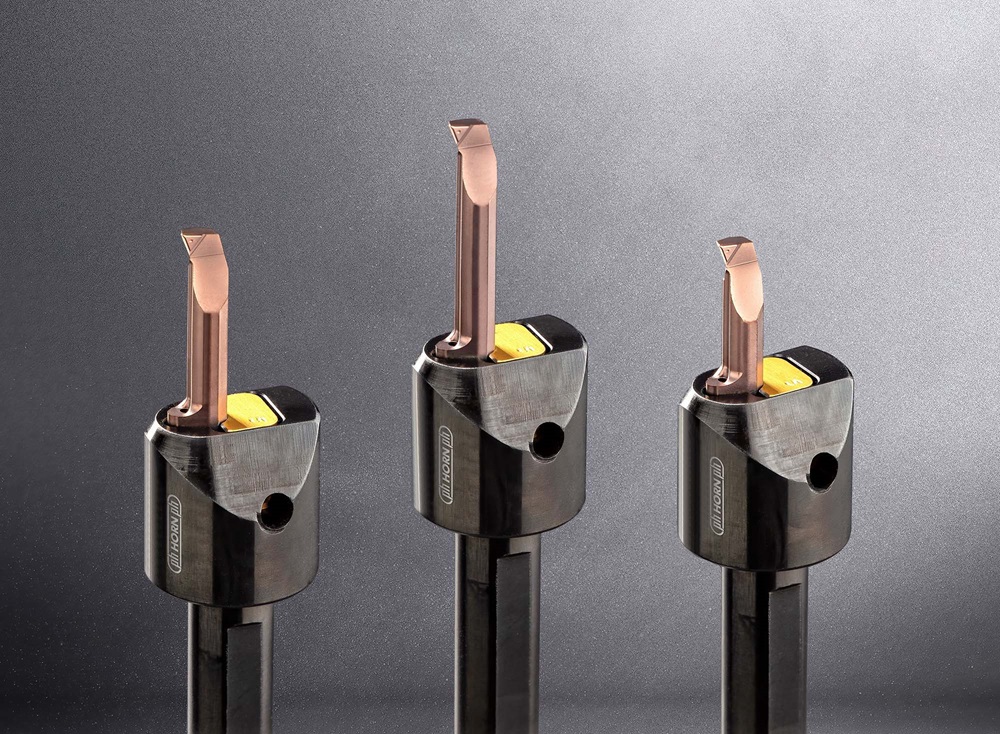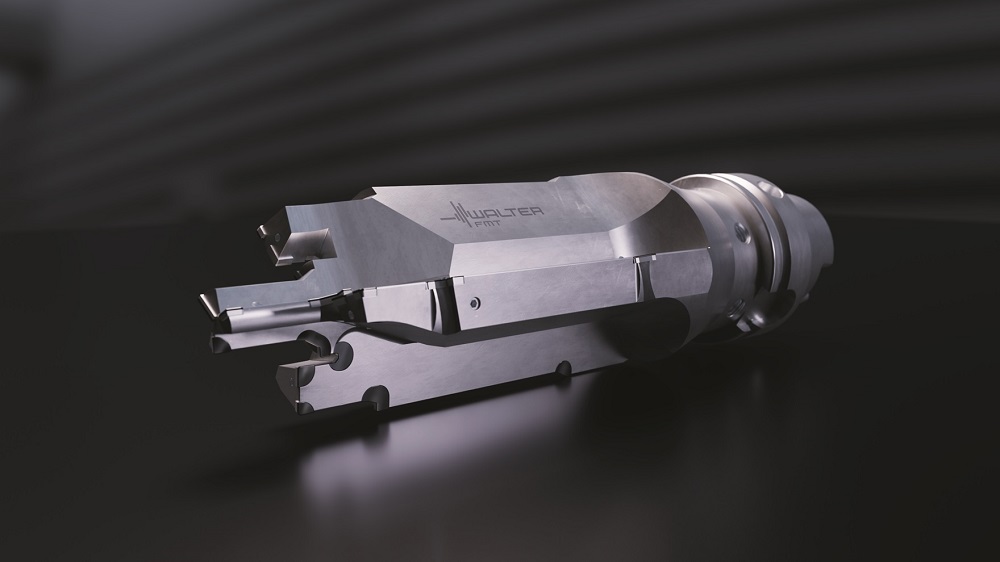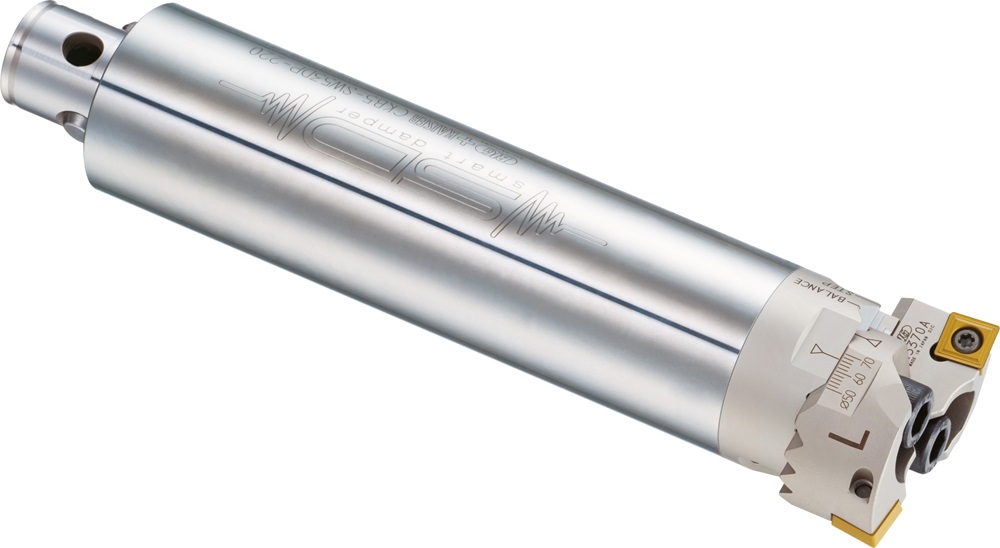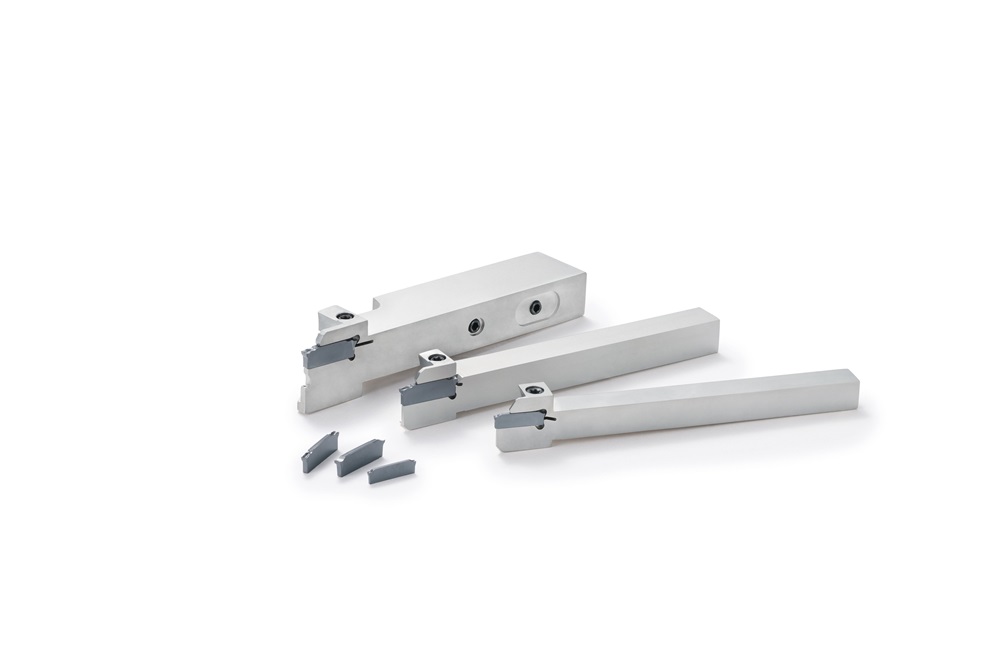Kyocera Corporation has developed a new parting-off solution, denoted KGZ, for small component machining. KGZ uses a new clamp structure with three proprietary mechanisms to lock the insert in place, suppress chatter and achieve stable machining. In addition, the constraint surface of the holder has a shape that distributes stress, improves durability and realises high-efficiency machining.
Within the insert grade’s line-up, a newly developed PVD-coated grade known as the PR 20 is also available for the KGZ. The new coating, MegaCoat 1 Nano EX, which is resistant to oxidation and abrasion, achieves high precision, long tool life and stable machining when parting-off steel, stainless steel and cast-iron workpieces.
Notably, the new KGZ design improves the holding force of the insert and the durability of the tool holder through three proprietary mechanisms: gap section, top clamp and stopper.
With the gap section, users can simply press down on the insert from directly above to firmly secure it in place. Generally, it is structurally difficult to fix the insert directly above with a parting-off tool. KGZ has a tapered slit with a slanted cut, so when tightening the fastening screw it applies a restraining force from directly above the insert, securing it in place.
The top clamp serves to pull the insert inward and increase the binding force. Designing the shape so that force is applied inward when clamping the insert suppresses the displacement of the insert in the front and rear directions.
Kyocera’s stopper disperses stress over a large area and improves the durability of the holder. According to the company, this design reduces the amount of stopper wear to about one-third of that of competitor products.
More information www.kyocera-unimerco.com



















